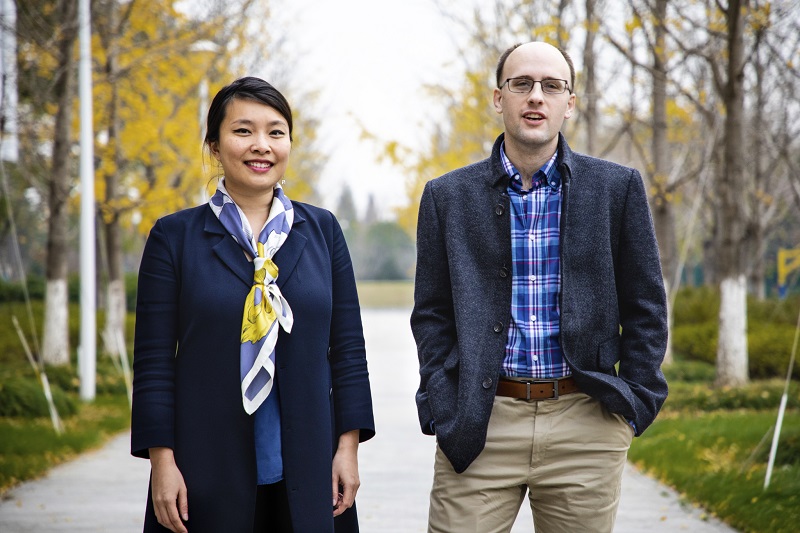
History professors Selina Lai-Henderson and Jesse Olsavsky lead the new Freedom Lab
By Anisha Joshi
Student Media Center fellow
What does freedom mean to you? While the word evokes grand ideas of emancipation or decolonialization in some people, for others it simply means being free of the boundaries a society can place on self-expression. In reality, how we answer the question is entirely shaped by where and how we grew up, our nationality, our race and even our gender.
For history professors Selina Lai-Henderson and Jesse Olsavsky, understanding collective and individual definitions of freedom ‘ and inversely ‘unfreedom’ ‘ is crucial to tackling modern issues as diverse as human trafficking, forced labor, prison conditions, populism and the #MeToo movement.
As co-leaders of Duke Kunshan’s new Freedom Lab, one of three new labs launched by the Humanities Research Center (HRC) this year, the duo will spearhead research on the topic to inform how far we have come as a society, and where we could potentially go.
Lai-Henderson said one of the aims of the lab is to build a tolerance among people from different backgrounds toward opposing perspectives and interpretations of historical or current events.
‘It’s an important job for us to help rewrite history in a way,’ she said. ‘We make assumptions so easily. In the classroom we try to foster dialogue among students, and it’s so easy for anybody to say what they believe is the true version of history. But what if someone comes in with a totally different background and tells you this is not what they hear? How do you deal with that?’
The lab will engage undergraduate students as research assistants, providing institutional support and resources, and will create opportunities for them to collaborate with faculty and potentially co-author papers. World-leading scholars in fields across the humanities will also be invited to present their work and connect with faculty and students.
With Duke Kunshan’s students coming from more than 40 different countries, the professors hope that this cultural diversity will lead to valuable fresh perspectives on the multifaceted idea of freedom as well as reflected in the research produced.
‘Although we say we live in a very global world, the reality is that we still live in a cultural bubble. The lab can help open up this bubble if we have collaborations with people from different backgrounds,’ said Lai-Henderson.
The research interests of the two history professors present an interesting liminal area in the discussion of race and freedom. Lai-Henderson focuses on American studies on a transnational platform, exploring the discussion of race in an Afro-Asian context by engaging with works by the likes of Mark Twain and Langston Hughes. Olsavsky studies antislavery movements in the 19th century and the ways that antislavery ideas influenced 20th-century pan-African thinkers.
Olsavsky said one area the lab will look to understand is the often-contradictory relationship between freedom and unfreedom. For example, he said, in the U.S. the practice of democracy coincided with the qualitative expansion of slavery as an institution, while in modern China the liberation of productive forces and markets has caused social inequalities.
‘These kinds of paradoxes are among the things we’d like to explore,’ he said, adding that everyone involved in the lab will investigate ‘a world that is new to them.’
In addition to the Freedom Lab, the HRC has also this year launched research labs focusing on health humanities, a term used broadly to define the use of humanities in the promotion of health and well-being, and the ‘third space,’ which is defined as the opening of a new field where different cultures converge, contest and collaborate.
Anisha Joshi, undergraduate Class of 2022, is a fellow at the Student Media Center.

